Explainers ·
Do heat resistant corals exist?
As sea temperatures rise, understanding heat tolerance in corals could prove critical in ensuring the survival of the Great Barrier Reef.
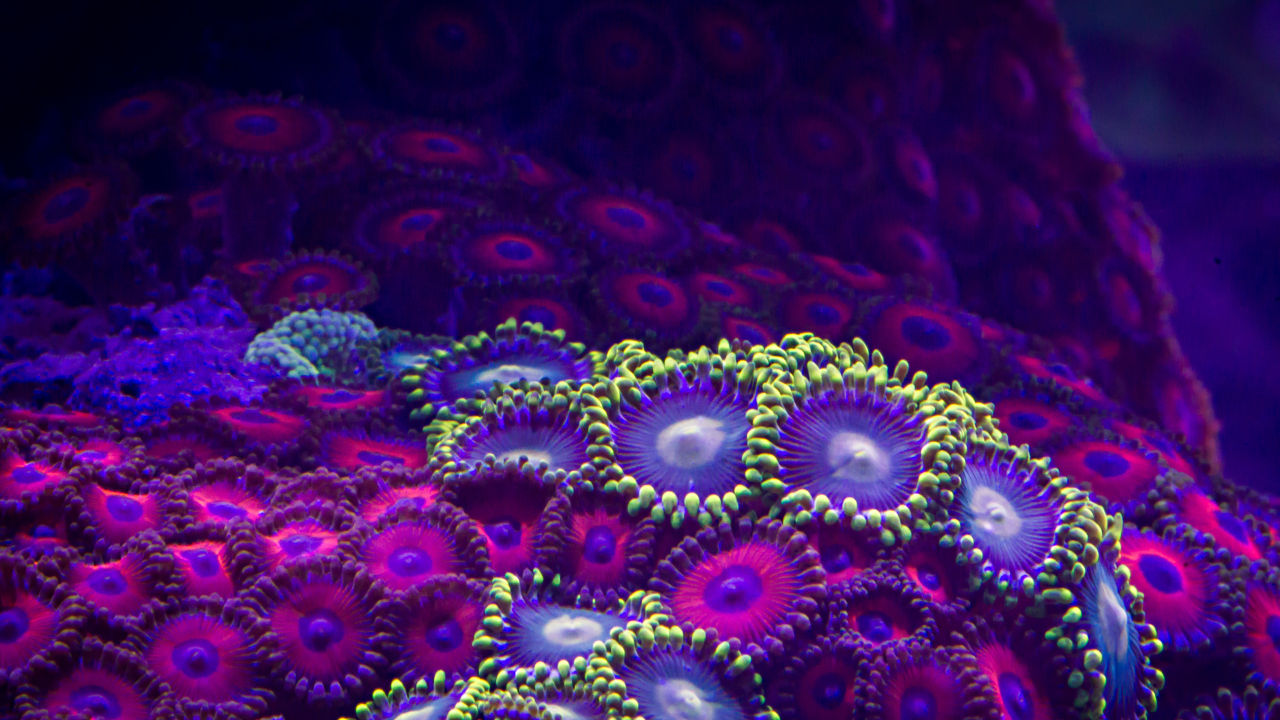
Like all animals, corals have slowly adapted to changes in their environment over thousands of years. This includes changing water temperatures, which vary widely depending on each coral’s surrounding habitat, depth and geographic location.
Coral species that grow in warmer environments are naturally more tolerant of higher water temperatures than those in cooler areas. When there’s a marine heat wave, they are more likely to survive, breed and pass their genes onto the next generation.
This is a very slow process but, over time, it allows corals to naturally adapt to small changes in their environment like increases in water temperature.
#How do we measure natural heat tolerance in corals?
There are hundreds of types of corals on the Great Barrier Reef and there’s a huge amount of variation in their genes. Scientists are mapping the locations of the most heat-tolerant corals and which of their genes give them this tolerance.
To do this, tiny fragments of healthy corals are collected from the Reef and placed into aquarium tanks that have higher water temperatures or increased amounts of light. This is known as a rapid heat stress test and allows scientists to observe how a particular coral performs under heat stress – for example whether it bleaches and if so, at what temperature.
Each coral fragment’s DNA, and that of the algae that lives inside it, is also extracted and sequenced. This allows scientists to identify the genetic markers of heat tolerance that will be passed onto the next generation.
This work helps us understand how and where corals might best be able to resist warming temperatures and their potential to adapt in the face of climate change.
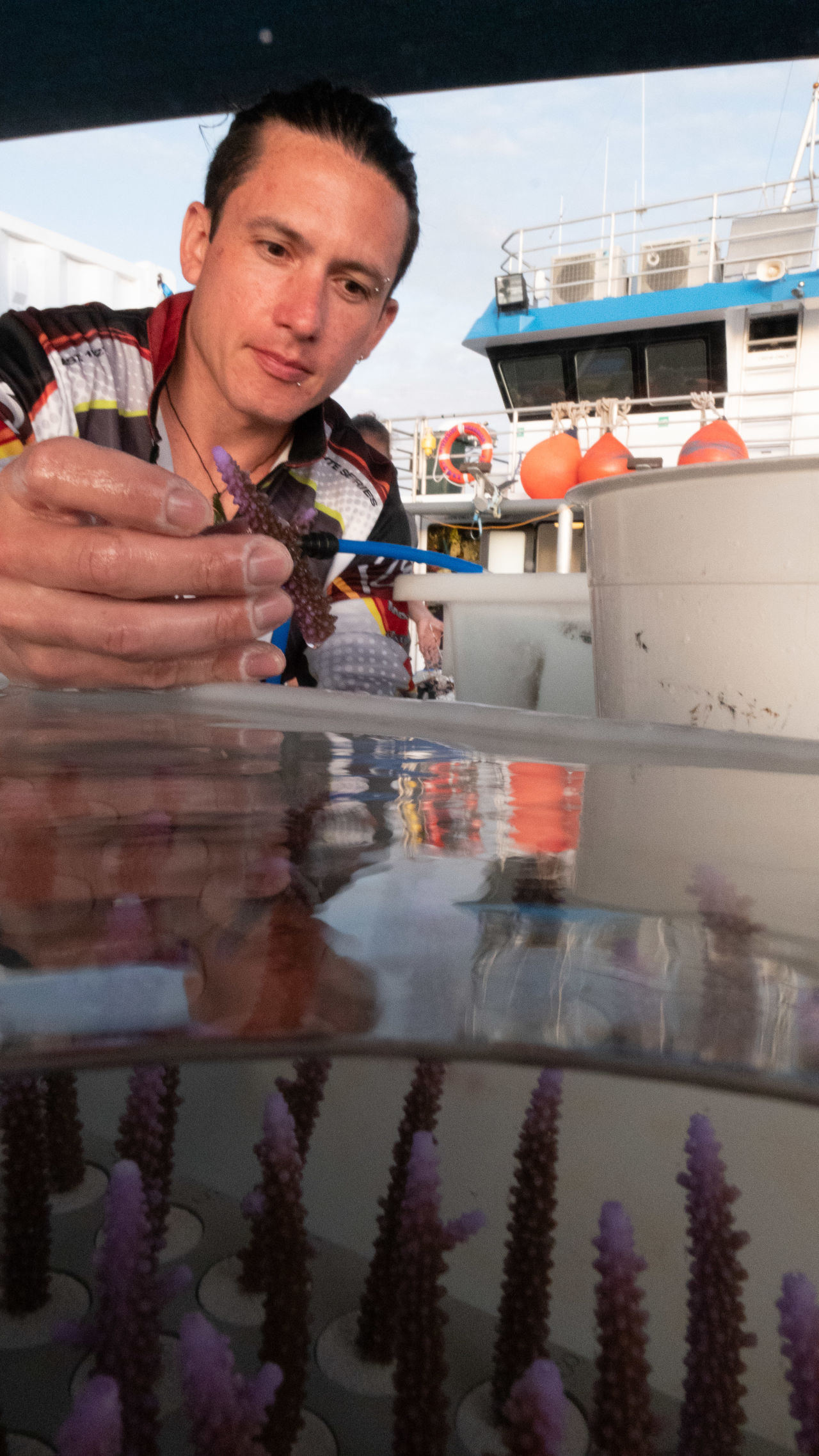
Small segments of corals are collected from the Reef and assessed for heat tolerance. Credit: Ian McLeod
#What temperature can corals usually tolerate?
Broadly speaking, corals can survive in water between 20°C (68°F) and 29°C (84°F), with optimal growth occurring at temperatures between 23°C (73°F) and 26°C (79°F).
23-26°C
+29°C
#Can we enhance heat tolerance in corals?
We know corals are not able to adapt fast enough to keep pace with the warming water temperatures caused by climate change, or the increased frequency of marine heatwaves on the Reef each summer. Boosting corals’ heat tolerance and resilience in the face of continued and increasing climate change stress is critical.
Research indicates we may be able to unlock and speed up heat tolerance in a number of ways, including:
Selectively cross-breeding corals either within the same species or across species, mixing heat tolerant corals with those that are less so. When the next hybrid generation is born, they may contain boosted survival traits compared with non-crossed corals.
Conditioning and acclimatising corals over time to gradual increases in water temperature, then breeding new more tolerant generations.
Giving corals special probiotics, diets and other treatments that boost their health, making them more resilient to environmental changes.
Research in this field is part of our partnership in the Reef Restoration and Adaptation Program and is led by the Australian Institute of Marine Science. The Institute’s National SeaSimulator provides a portable controlled aquarium environment for these heat tolerance experiments so large numbers of coral can be tested while at sea.
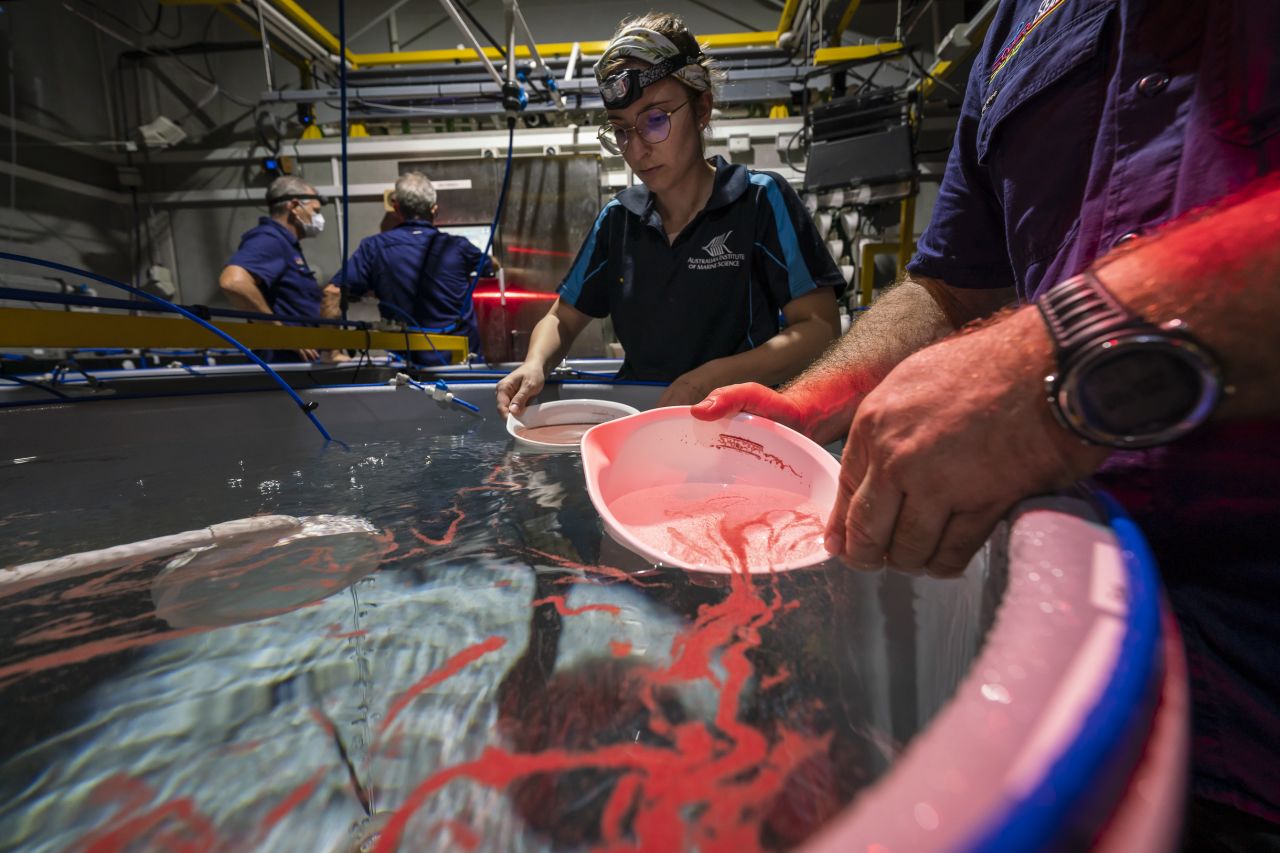
Researchers collecting coral spawn in aquaculture, at the National Sea Simulator, an important facility for heat tolerance research. Credit: SkyReef Photo
#How does understanding heat tolerance help the Reef?
While the world works to reduce greenhouse gas emissions, it’s imperative that we research and implement solutions to protect existing coral reefs from the impacts of climate change and help them adapt to the rapid pace of change.
Understanding corals’ heat tolerance, and then enhancing and growing new generations of heat-tolerant corals, is a critical part of this adaptive helping hand. Corals spawned in aquaculture that have learnt to live in warmer temperatures can potentially be strategically deployed onto the Reef, to ensure they pass on their unique properties to the next generation. Additionally, identifying where the most heat tolerant corals live can help us prioritise protection efforts.
There’s much more we need to know to fully understand this adaptation process. Ongoing research to better understand more about the innate ability of corals to adapt to the impacts of climate change is critical to sustaining functional reefs in the future.
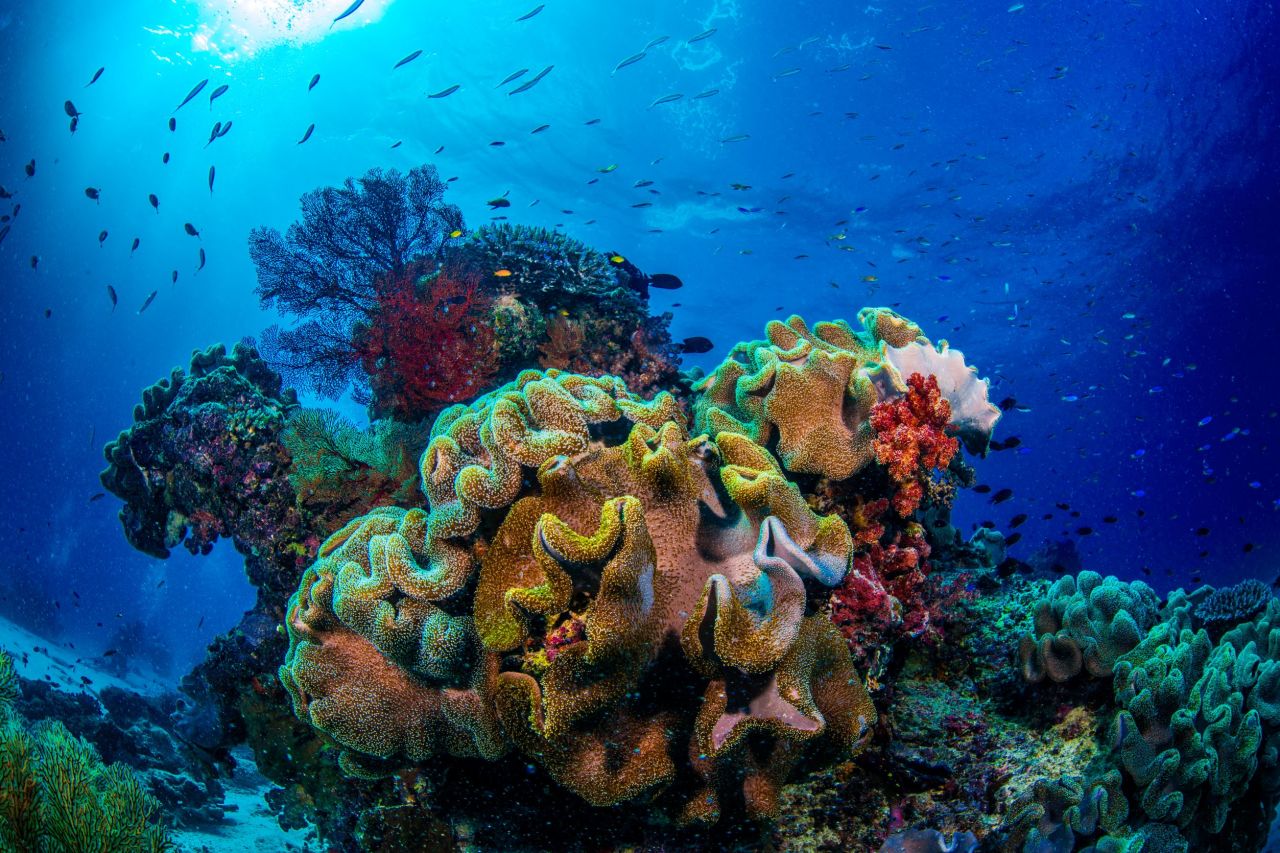
Underwater coral landscape. Credit: Gary Cranitch, Queensland Museum
The Reef Restoration and Adaptation Program aims to reduce critical uncertainty around a suite of possible interventions, to help develop a safe, cost-effective, and acceptable toolkit for restoration and adaptation. Program Partners include: the Australian Institute of Marine Science, the Great Barrier Reef Foundation, CSIRO, The University of Queensland, Queensland University of Technology, Southern Cross University and James Cook University.

#Tomorrow needs you, now.
The Great Barrier Reef is in desperate need of support. Donate today to help grow new baby corals, creating a better future for the Reef.
#Related

Explainers ·
What is coral spawning?
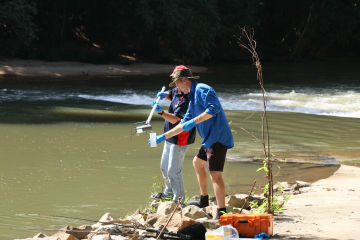
Explainers ·
Uncovering hidden species with eDNA
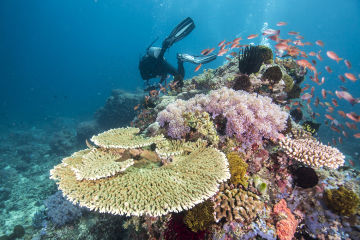
Explainers ·
What is biodiversity and why is it so important?
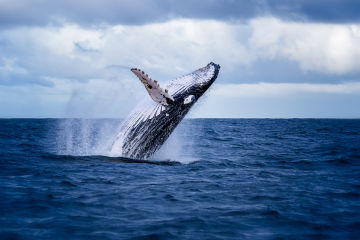
Explainers ·
